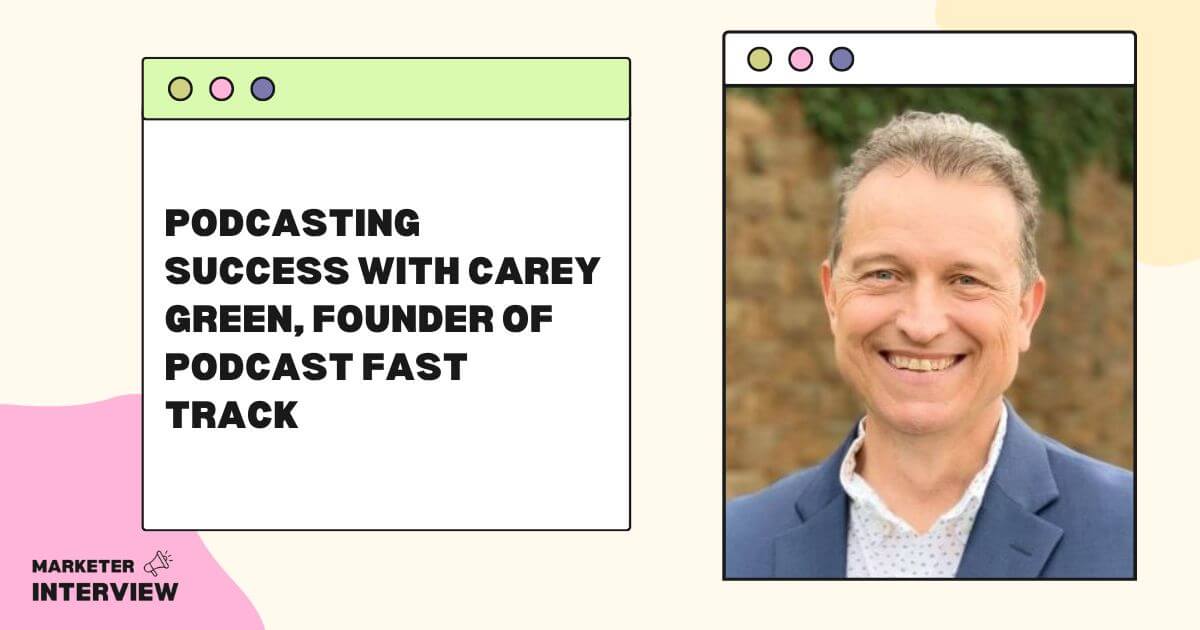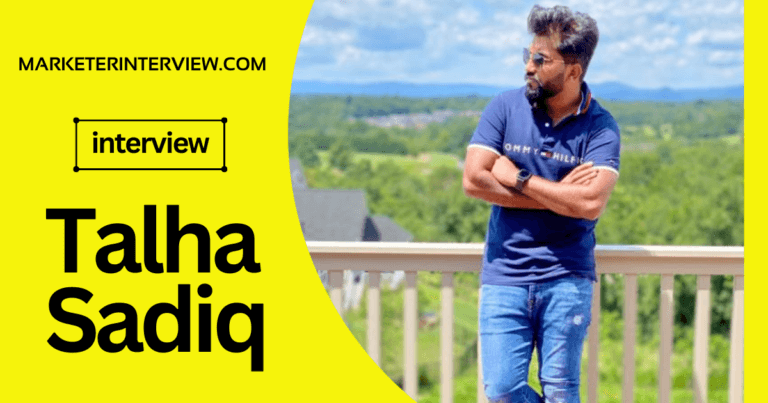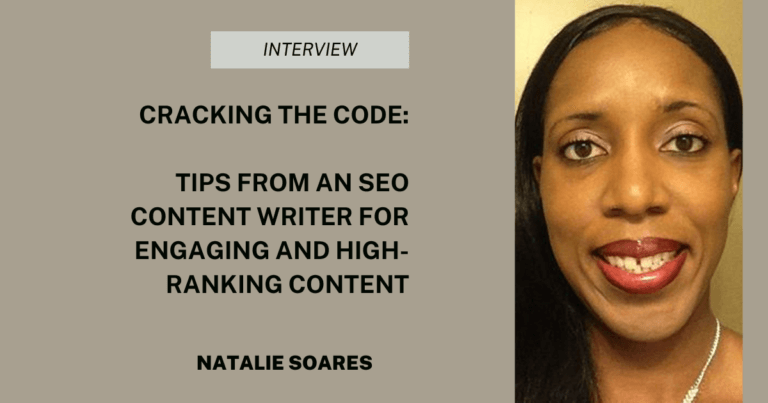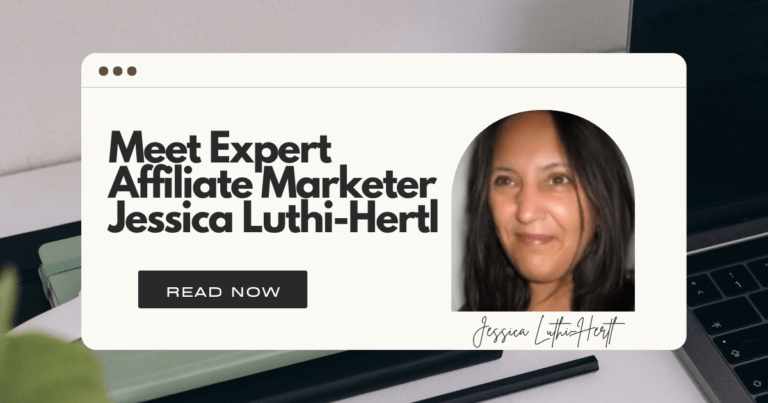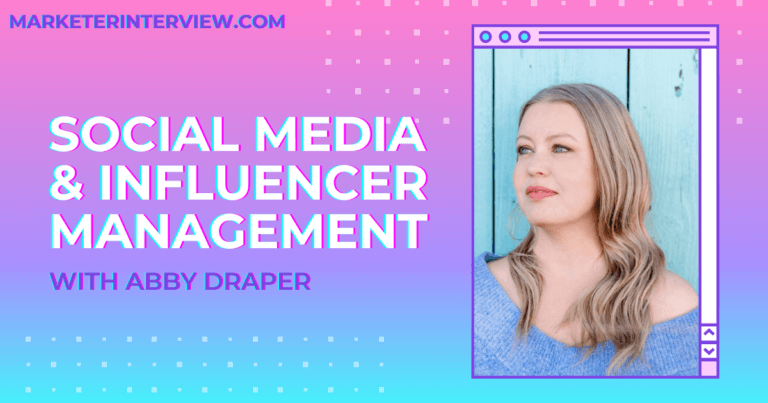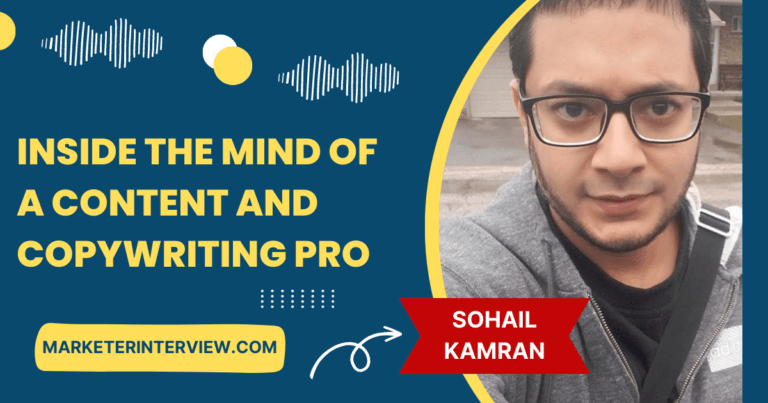Podcasting Success with Carey Green, Founder of Podcast Fast Track
Welcome to Marketer Interview, the popular marketing blog where we delve into the minds of fascinating marketers who have significantly impacted their field.
For today’s edition, we had Carey Green, Founder, and Client Happiness Guy at Podcast Fast Track, for the interview.
With a strategic approach to putting your message in front of your ideal audience through podcasting, Carey and his team excel in delivering exceptional podcast production services, SEO-optimized written content, and other media elements that make your podcast stand out. Carey’s expertise and insights will provide valuable knowledge for aspiring and experienced podcasters.
Contents
- 1 How did you first venture into marketing, and what attracted you to podcasting specifically?
- 2 As the Founder and Client Happiness Guy at Podcast Fast Track, could you share the story behind the inception of your company and the vision that drives your work?
- 3 Podcasts have become very popular recently. What, in your opinion, goes into creating a successful podcast?
- 4 Could you explain the importance of strategic approaches in podcasting and how they contribute to the success of a podcast?
- 5 How do you assist your clients in identifying and targeting their ideal audience for maximum impact?
- 6 Can you share some effective techniques for creating captivating content that keeps listeners engaged throughout the episode?
- 7 SEO-optimized written content is one of your areas of expertise. How does this complement podcasting, and what strategies do you employ to enhance discoverability and reach?
- 8 What are some common challenges podcasters face when launching their shows, and how do you guide them through these obstacles?
- 9 Could you highlight a few key metrics podcasters should track to gauge the performance and growth of their shows?
- 10 Which tools and software have been instrumental in streamlining your podcast production process and ensuring top-notch quality?
How did you first venture into marketing, and what attracted you to podcasting specifically?
I first began marketing things because I had to. I was in a season of my life where I was transitioning from a 20-year career into the realm of the unknown.
I was trying my hand at online content creation, one of those avenues being my podcast, and I had to figure out how to get my message and resources in front of others. That is what marketing is, so whether I liked it or not, and I didn’t like it because it felt too salesy to me, I had to figure it out and get it done if my efforts were to bear any fruit.
I enjoyed podcasting because it enabled me to continue teaching, coaching, and mentoring people from a distance, which were the most enjoyable things in my previous career as a minister.
Once I realized that podcasting was a form of content marketing, I was keenly interested in figuring out how to produce and promote podcasts successfully.
I began my company as a bootstrapped solo entrepreneur.
I did so because I had to, my family needed to eat, and I could find no viable source of income in the small mountain town where I lived. I was doing all kinds of things to make financial ends meet at the time: demonstrating products at my local Costco, taking out jobs here and there, delivering newspapers in the mornings, and continuing to work on my online projects.
I can’t remember the exact series of events, but I began helping people I met online with audio editing, and I never thought it was that great of an opportunity. But one of the guys I was working with told me I should create a full-fledged business out of the audio work I was doing to help him.
From my experience producing my podcast, I immediately knew there was a need and a market for those kinds of services, so I began researching what it would take to establish the services and systems that would serve that market.
I began doing all the work myself and eventually got my first client. From there, I rustled up a few more clients, began marketing in cheap, random, hit-and-miss ways, and got a few referrals from existing clients to follow up on.
Within the first year, I served 8 to 10 regular clients; within the second year, that number expanded beyond 20. I brought in my oldest son, who has an excellent audio editor himself, and the two of us put our heads down and got to work at expanding the business.
I have seen that podcasting is one of the most fantastic forms of content marketing. Producing your podcast provides an ongoing opportunity to build intimate relationships with ideal prospects. And if you do it right, it enables you to build a reputation as an expert in your field and establish a media machine that can serve all your other marketing efforts over the long haul.
Podcasts have become very popular recently. What, in your opinion, goes into creating a successful podcast?
First, how you define success depends on your goals. Let me give you an example of what I mean.
I have seen podcasters become quite successful at inviting their ideal prospects to be guests on their interview-style podcasts, hoping to convert them into paying clients. So the success metric in that scenario is “guests converted into clients.” Audience growth matters less, and public recognition doesn’t matter as much, and even authority building within your niche doesn’t matter as much.
Yet, that podcaster is booming according to their own goals.
But that is different from what most podcasters are trying to accomplish. Most are trying to create that content marketing flywheel that podcasting can be, which I described earlier.
In that case, as with any marketing, the first step toward podcasting success is knowing your audience intimately, who you are trying to serve, and what they need.
After that, you must identify how to meet that need uniquely. I say uniquely because you have to establish your voice and a particular way of addressing that need that attracts a crowd of people who think similarly to you.
Remember that in podcasting, your audience self-selects you as a resource they want to consume. They do that because you speak a language and style that they resonate with and is consistent with your personality and perspective.
From there, you have to strategize around that audience’s needs. You have to figure out what type of episode format they will enjoy, what type of resources they will best use and consume, and what approach they would appreciate. Podcasting is very forgiving, so there’s much room for trial and error.
Could you explain the importance of strategic approaches in podcasting and how they contribute to the success of a podcast?
Strategy is everything. I believe wholeheartedly what Benjamin Franklin once said, “If you fail to plan, you plan to fail.”
Marketing is strategy. Without it, you’re throwing things against the wall and hoping something sticks. Spending finite resources, especially your time, is a very foolish way.
This applies doubly for podcasting because it’s a form of media consumption, so your podcasting efforts compete with the big players like Netflix, Amazon, movie studios, etc. You can’t expect to throw anything against the wall and have it stick when you have budgets of those sizes and professionals on their teams to compete against.
The only way to be successful is to plan what you want to accomplish, systematically create steps to accomplish it and execute your plan consistently.
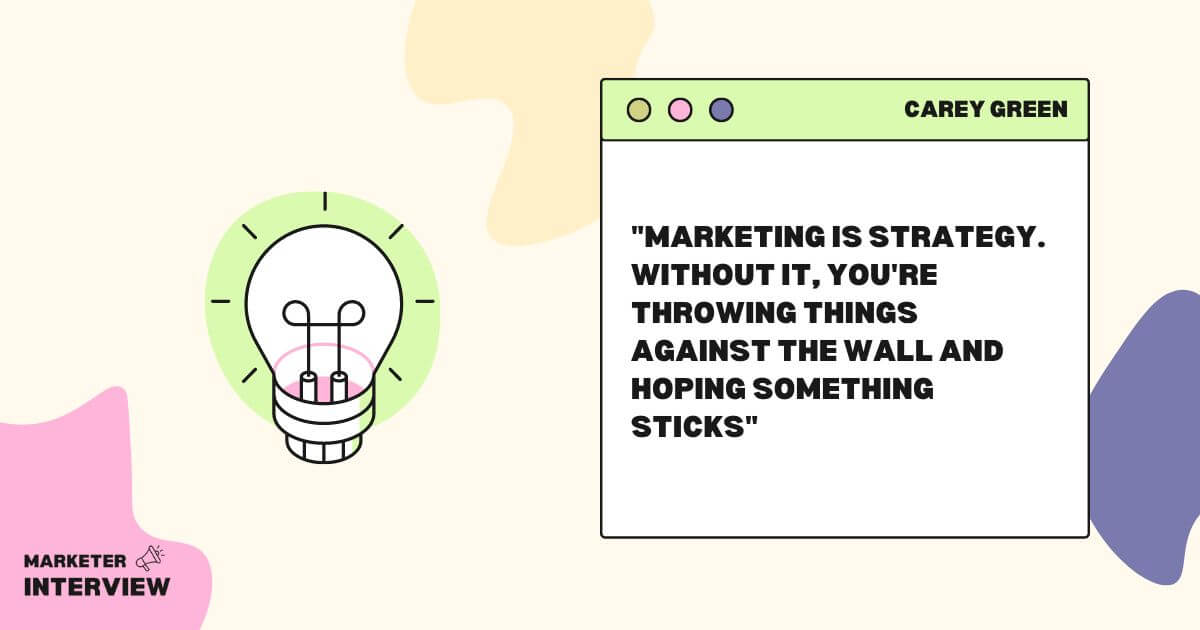
How do you assist your clients in identifying and targeting their ideal audience for maximum impact?
There are a variety of tools that we can use or teach our clients to use that can help them hone in on their ideal audience.
But we also encourage them to find their audience online and take the time to hang out where they hang out. Listen to the conversations, ask questions, help where you can help, and build relationships. The more of a known quantity you are to your audience, the more responsive they will be when you launch your podcast.
Why? Because you have demonstrated already that you are a valuable and trustworthy source of information for them.
First, before you ever hit the record button, ensure you know what you’re talking about. Nothing will disenchant a potential listener more than faking it.
Sloppy preparation, whether for interviews or solo-style episodes, shows you’re an amateur, not a professional. The more you demonstrate that you know what you’re talking about, the more people interested in your topics will pay attention to you, episode to episode.
Next, make the first 30 seconds of every episode count. You’ve got to get your audience’s attention from the very beginning of every episode and compel them to listen.
Stories are undeniably one of the best ways to do this. Tell a story from your own life, from an experience you had with a client, from a failure you experienced, or anything that gets people interested in your topic.
Next, keep in mind that people’s focus drifts. So, present your topics and break things up with different stories and illustrations to keep people engaged. You can even use sound effects or your show’s segmentation, but do what is necessary. There is a fine line between cool and hokey.
SEO-optimized written content is one of your areas of expertise. How does this complement podcasting, and what strategies do you employ to enhance discoverability and reach?
The SEO part is all about discoverability.
If people can find you organically when searching for topics online, they may become subscribers to your podcast. And there’s more to this than keyword stuffing a blog post that links to your podcast episode.
Written content also needs to be engaging, so the same principle about catching their attention and keeping it applies here.
Don’t make search engine optimization your primary goal. Make interesting content that is truly helpful to your primary goal. If the search engines can tell that people find your written content helpful, they will boost the rankings.
You should repurpose that content into compelling episode descriptions to include with your episode in the podcast apps.
Many potential listeners choose not to listen to episodes simply because they don’t have enough idea of whether that particular episode will address the issues they are curious about. A simple but compelling episode description that displays appropriately in the podcast apps can avoid that problem and potentially gain a new listener.
You should also repurpose that larger document into social media promotional material. Don’t simply copy and paste, reformat, and restructure to fit the social media platform it will be used on.
Remember that you are trying to stop the scroll on social media, so make sure the very first thing readers see is attention-grabbing and compelling without being clickbait. I should be true to the topics of your episode but fashioned in a way that makes people curious, angry, confused, or interested.
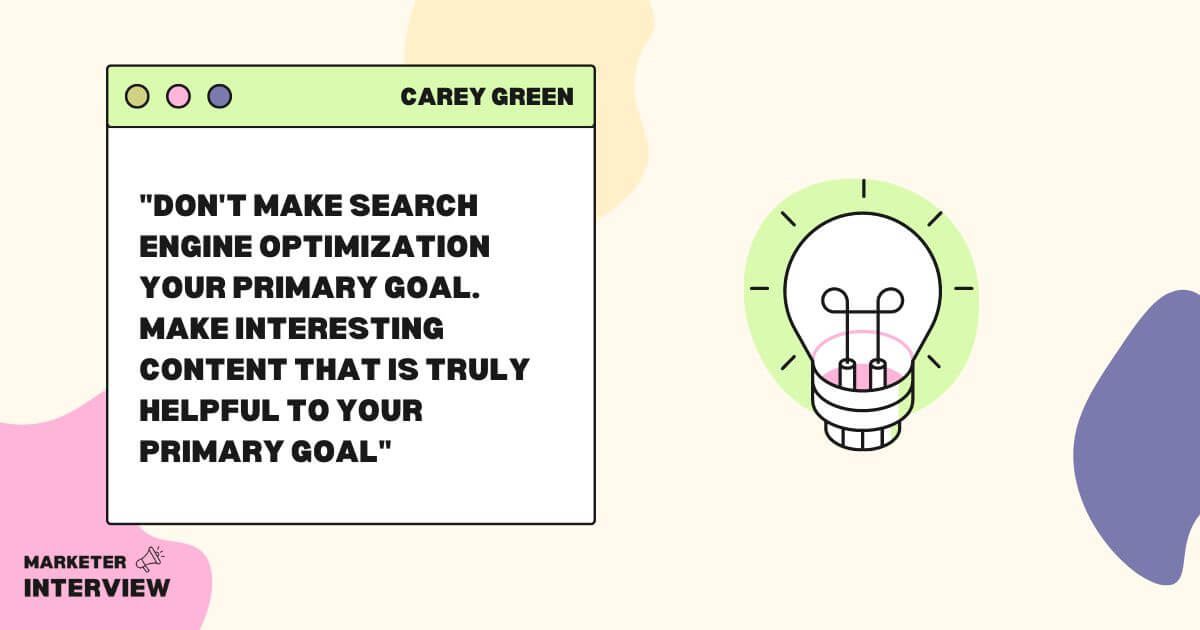
What are some common challenges podcasters face when launching their shows, and how do you guide them through these obstacles?
There are a handful of possible challenges:
Lack of knowledge:
Many people don’t know the first thing about the technology behind podcasting, what equipment is required to record themselves or guests, or how to use those resources effectively.
They may also be unaware of cover art requirements, music legalities, copyright issues regarding the name of their show, how to optimize their show name and episode titles for search, and much more.
Our team consults with every incoming monthly client to help them dial these in for their setting and use-case free of charge. We are building long-term relationships, not simply engaging in transactions. Their success is our long-term success. We want to serve them as partners.
Mindset issues:
New podcasters have many attitudes that need to be gently debunked and reestablished according to the truth. One example is that if they publish their episodes, people will find them.
The truth of the matter is that this isn’t very common. Marketing has to happen to make people aware of their show, the questions and needs it addresses, and more.
Long-term success steps:
Podcasting, like anything else, requires organization and systematization if it is done consistently with quality. Most new podcasters underestimate this piece and end their show out of frustration.
We do our best to help clients understand the WHY behind the systems we suggest so that they will be motivated to create and use them successfully. Again, we do this for free when clients need this assistance.
Could you highlight a few key metrics podcasters should track to gauge the performance and growth of their shows?
Most people point to episode downloads as the primary metric for a new podcaster. That is the LAST thing that should determine what they do.
Instead, we recommend they bake-in ways for their audience to interact with them from the first episode. This could be called to action and social media hashtags unique to their show, survey requests, and more.
The idea is to get REAL feedback from people who listen to their show. This enables informed decisions rather than spitballing it based on generic download numbers and geographic regions.
Which tools and software have been instrumental in streamlining your podcast production process and ensuring top-notch quality?
There are many, and my recommendations would depend on whether we’re talking about audio or video podcasts.
For those with little to no audio experience, I suggest using Auphonic.com to optimize audio. The free account is more than adequate for most podcasters.
For those who want to learn audio editing, Audacity is a good choice. There are many YouTube videos available to help them get started.
Automation tools like Zapier are essential once a show gets going. These can save you small blocks of time that add to huge time and effort savings in the long run.
